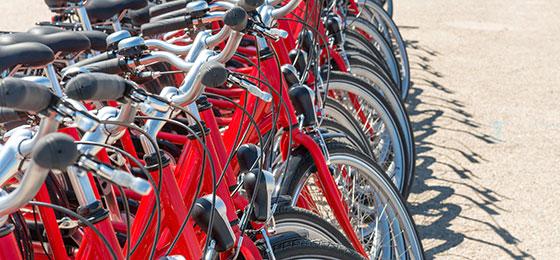Completed research project: Sharing is saving
Different forms of shared mobility help reduce car ownership and use.
Collaborative mobility is a promising new way to save energy. Past studies show that station-based car-sharing can help reduce car ownership and use. However, it remained unclear whether other forms of shared mobility like bike-sharing or ride-sourcing also have such a positive impact. Moreover, there were no answers to the question as to how such schemes are used today and how they may interact with each other and with the rest of the transport system if deployed together. These aspects were examined by a research team headed by Prof. Kay Axhausen at the Institute for Transport Planning and Systems of the ETH Zurich.
Empirical analyses reveal that different forms of shared mobility do indeed serve different customer groups and show different usage patterns. However, they generally appear to complement the public transportation services and networks and enable members to reduce their level of car-ownership and use.
Moreover, results indicate that in certain situations shared mobility may even be an efficient substitute for line-based public transportation services, if adequately subsidised. However, it seems likely that shared mobility services will need to be regulated and integrated in order to maximise system-level benefits.

